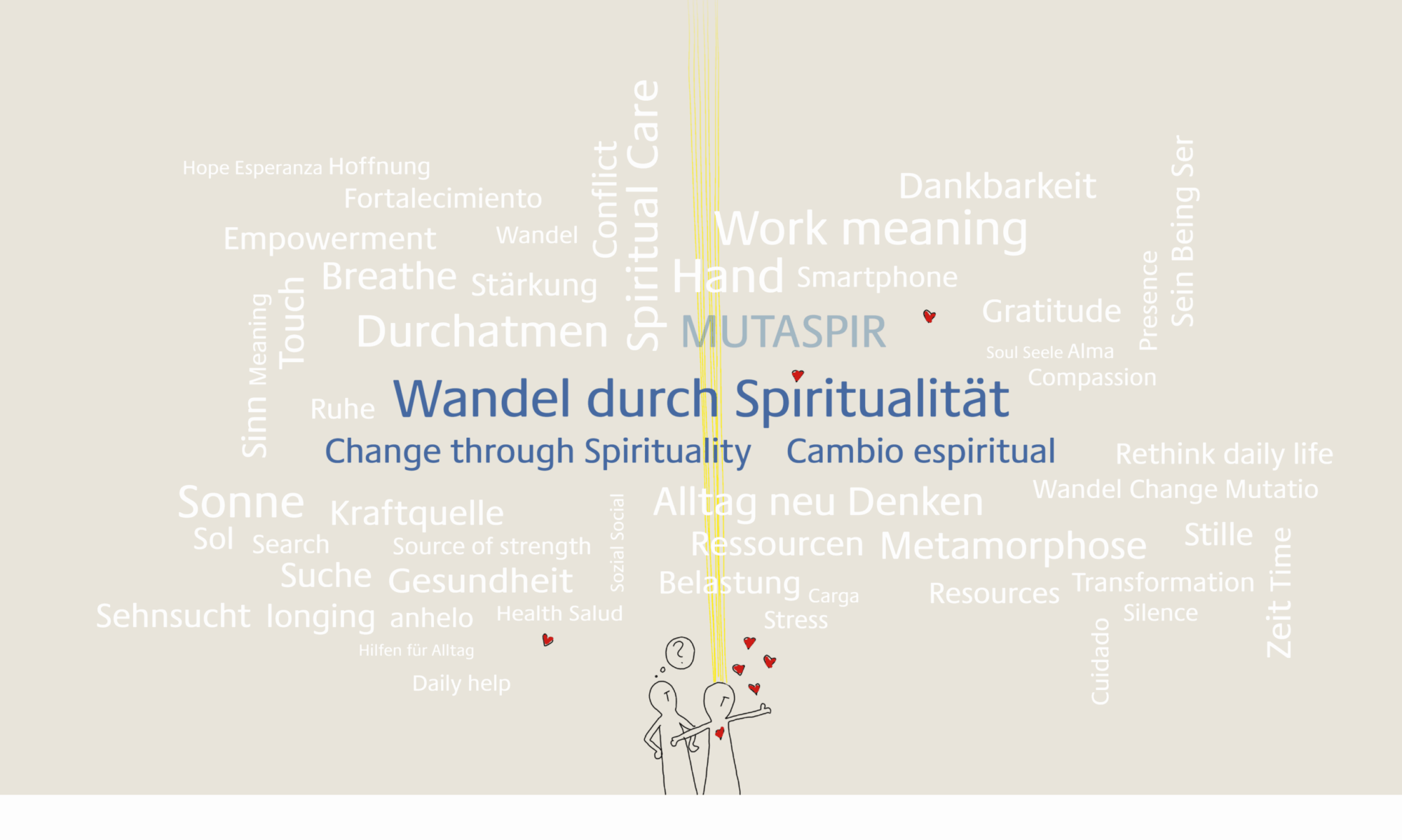MUTASPIR – the people behind it
Spiritual Care grows through connection. It is shaped by people – through their attitudes, experiences, and questions. Some of them speak here: from science, practice, care, and education. They share personal thoughts, impulses, and perspectives that help carry and evolve MUTASPIR.
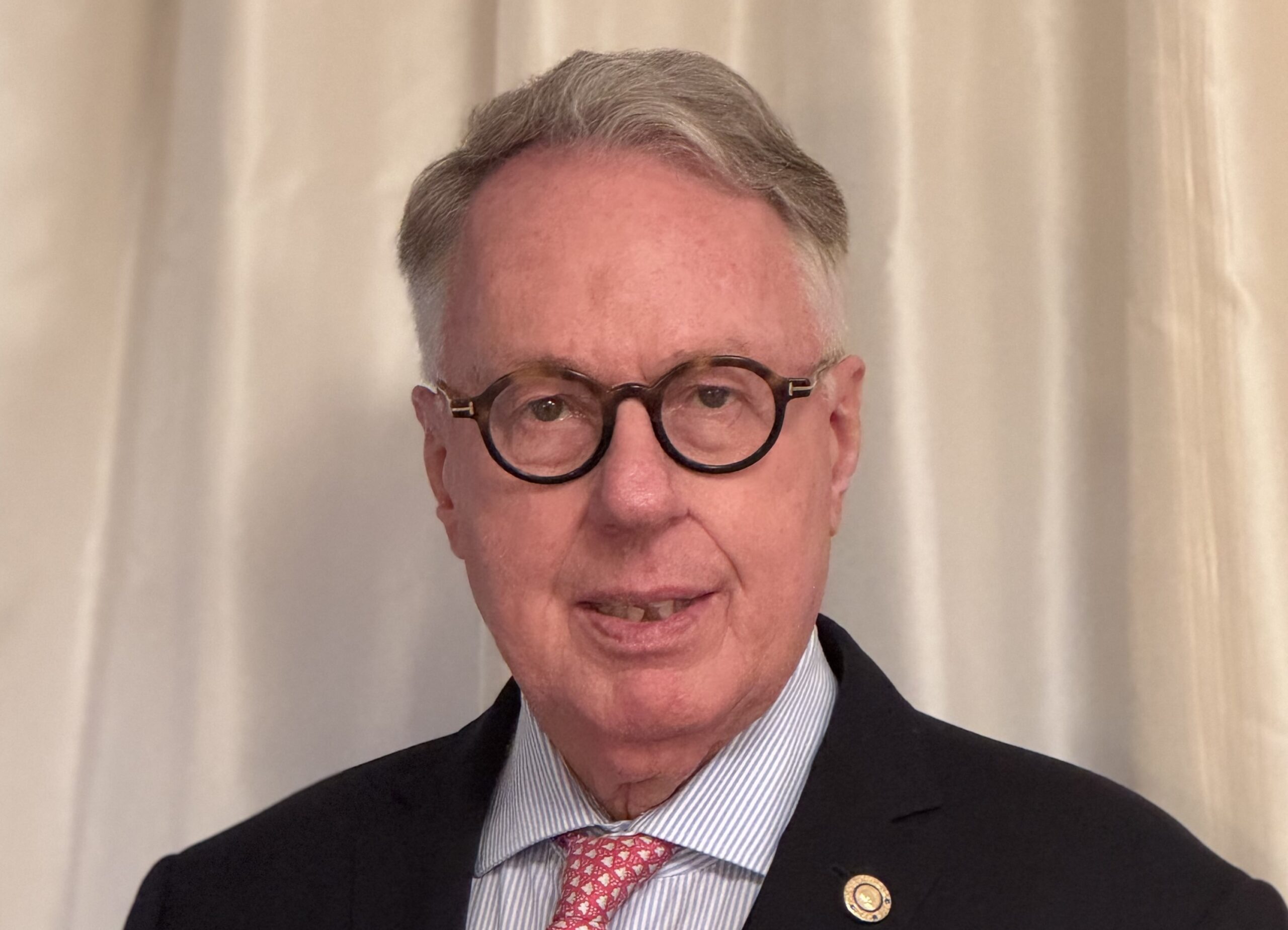
Eugen Turi
“Spirituality in healthcare is not a luxury – it is a necessity.”
Eugen Turi, former senior government official and now deputy chair of the foundation’s board of trustees, helped shape structures in the healthcare and long-term care sectors over many years. The foundation supports research and practice in medicine for older people and in nursing – and this is precisely where he sees a major gap: there are countless reforms, but very few address what truly sustains patients – and what caregivers, physicians, and nurses urgently need: an inner attitude that goes beyond mere efficiency.
Show lessWe invest millions in new structures, but the most important question is barely addressed: What gives people in healthcare and caregiving real support? Spirituality is not only important for patients – it is just as vital for those working within the system. We are experiencing a healthcare crisis that is not only about finances. The overload is real – not just physical, but emotional. We need more than technical solutions. We need a shift in mindset. That is why I support MUTASPIR: because it addresses exactly what is so often pushed aside. Because it offers a way to give something back to those within the system – something they urgently need: meaning and orientation.
Show lessI spent almost 13 years as chief of staff to two ministers of social affairs, was responsible for care policy, and today I serve as deputy chair of the Josef and Luise Kraft Foundation’s board of trustees. For many years, we supported professorships in nursing science and continually worked to improve the healthcare system. But the longer I have dealt with these issues, the clearer it becomes to me: one essential dimension is missing – the question of meaning and inner attitude.
In the field of care, people talk about quality assurance, staffing plans, and flat rates per case. But who actually asks: How are the people in this system really doing?
My wife worked for many years as a speech therapist in nursing homes. She witnessed firsthand how many care professionals, though well trained, break under emotional strain. How many of them eventually just “function” – because no one shows them how to remain inwardly grounded in such a demanding environment.
Spirituality – in a broad, non-denominational sense – is exactly what could help. It’s not about belief in the narrow sense, but about an inner posture that enables people to care for themselves and others in a healing way.
What convinces me about MUTASPIR is precisely this idea: that people should not simply be confronted with yet another reform, but empowered from within. That we don’t wait for the system to change on its own, but begin to move something ourselves.
Spirituality is no side note. It can make a difference in caregiving – and it can transform working conditions in a lasting way. That’s why I support it.
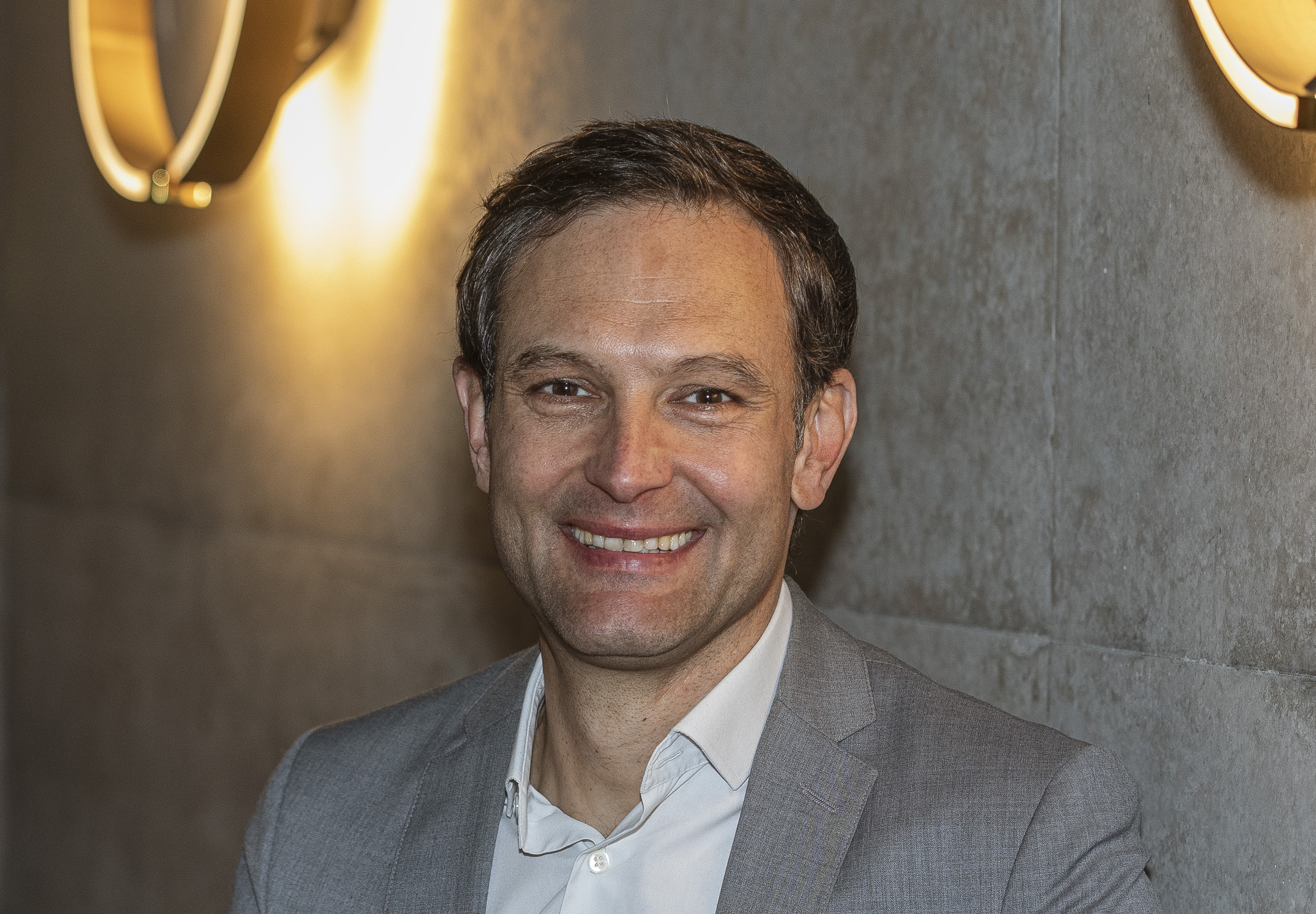
Prof. Dr. Andreas Beivers
“Spirituality in healthcare is not a footnote – it is a core concern.”
Andreas Beivers brings an unusual perspective: as a health economist and ethics consultant, he views the system from practice – and sees that something is missing. Not only patients, but also those working in healthcare need deeper orientation. A modern healthcare system cannot focus on efficiency alone – it must also ask the question of meaning.
Show lessAs economists, we often talk about efficiency, numbers, and costs. But if the goal is wrong, even the most efficient path is meaningless. Health economics is not just about money or structures – it’s about people. And what truly sustains people is often what we speak about the least: spirituality.
The healthcare system is facing a paradigm shift. Anyone who looks into hospitals can see: more and more people working there are asking themselves what it all really means. Why am I doing this? Why does the system so often feel cold and alienating?
Mutaspir, mutare per spiritualitatem – change through spirituality – is a key to bringing exactly these questions back to the center. Not as something esoteric, but as an essential part of a functioning healthcare system. That’s why I support this movement.
I’m an economist. And when you’re an economist, you tend to think in numbers, in systems, in resources. But what increasingly occupies my mind is something else: the question of meaning. I teach philosophy of economics, serve on ethics committees, and see every day how our healthcare system functions – or rather, where it reaches its limits.
One thing is becoming ever more apparent: people in healthcare are exhausted. Not just physically, but emotionally. They are not only overburdened – many are losing their sense of purpose in their work. And that’s not something we can fix with money or structures alone.
What MUTASPIR does is exactly what’s missing: it brings the human dimension back into the system. Spirituality – in a deep, non-religious sense – is not a luxury, not a “nice to have.” It is the foundation from which meaning emerges.
Because in the end, we can make our healthcare system as efficient as we like – but if the people working in it lose their sense of purpose, we have a fundamental problem. Spiritual Care must become a core part of healthcare – not only for patients, but also for everyone working in the system. And that’s why I support this movement.
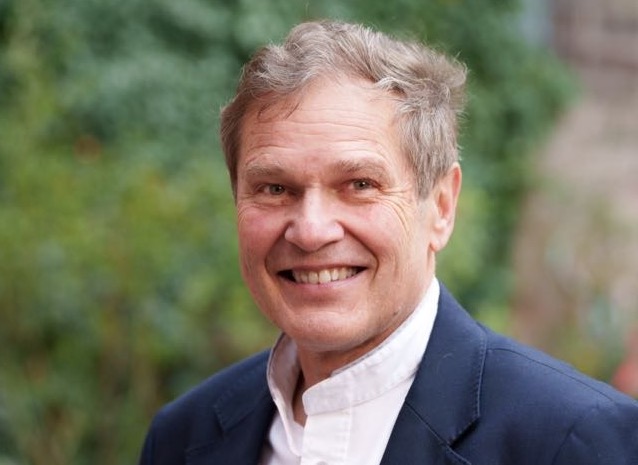
Hermann Imhof
“Spirituality is not a theory – it is a lived attitude, especially for those working in demanding professions.”
Hermann Imhof brings decades of experience in health and social policy. He held leading political positions for many years, advocated for the interests of patients and caregivers, and remains active today in voluntary work – especially in hospice and dementia support. His conviction: without inner balance, work in healthcare becomes inhumane. Nurses, doctors, relatives – they all need something that sustains them. MUTASPIR, change through spirituality, means exactly that: a way to find and preserve this inner center.
Show lessHealthcare professions are more than a series of physical tasks. They are a vocation that calls upon the whole person – and that means those working in the system also need something to hold onto.
I see it in my daughter, who has worked as a nurse for ten years. Care is more than physical labor – it is emotional, intellectual, and often spiritual support. But who ensures that the caregivers themselves have something that gives them strength?
Too many leave the profession because they burn out. Because in the rush, there is no more time for real human connection. And because it’s often forgotten that supporting others requires an inner center of one’s own.
This is exactly where spirituality comes in – not as religion, but as an attitude. It offers people a way not to lose themselves, even under extreme pressure. And that’s why it belongs not only in healthcare, but at the heart of society.
I worked for many years as a commissioner for nursing and patients, was active in social policy, and remain involved in hospice care to this day. I know the healthcare system from both a political and a practical perspective – and I see that we often overlook a crucial question: How can we ensure that those who care for others don’t end up being left behind themselves?
My daughter is a nurse. I see how she gives everything every day – and how demanding this profession is. In healthcare and medicine, people are often pushed to their limits. Some try to balance things out through sports. But for what they truly need inside, there is hardly any time.
Spirituality – understood as an inner attitude – can help here. It’s not about dogmas or questions of belief. It’s about finding an inner center, a space that provides grounding.
I discovered this path for myself more than 35 years ago: through contemplative retreats, through silence, through consciously reflecting on what sustains me. Those who are connected to themselves can meet others with greater clarity. That holds true in politics just as it does in hospitals or care homes.
Today, I see that this topic is more important than ever. People in healthcare are exhausted. They’re not just overworked – they often lack a deeper connection to what they do. And yet it’s precisely this connection that could help prevent burnout, reduce overload, and make genuine care possible again.
Mutaspir, mutare per spiritualitatem – change through spirituality – offers exactly this approach. It’s not an esoteric idea, but a clear and grounded way to make the healthcare system more humane. That’s why I support this movement.
Show less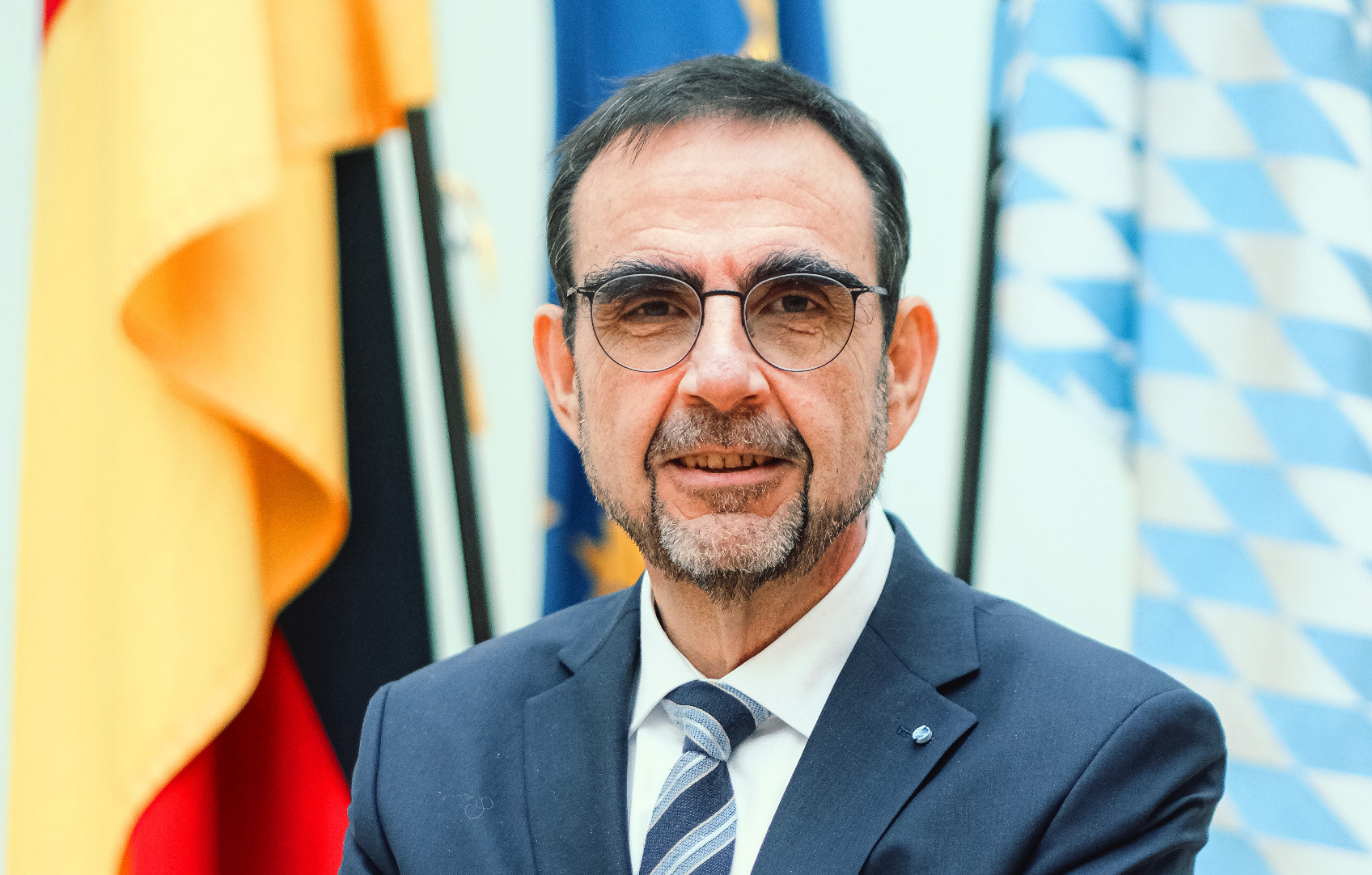
Klaus Holetschek
“Spirituality is not a side issue – it is an inner compass, especially for those under high pressure.”
Klaus Holetschek brings decades of experience in politics, care, and social affairs. He helped shape care policy, served as Bavarian Minister of Health and Care, was Citizens’ Commissioner of the State Government, and remains active in several honorary roles in the field. He witnesses firsthand what is missing in healthcare: a deeper awareness of the inner attitude of those who are there for others every day. His own spiritual practice has accompanied him for over 35 years – and it has taught him how essential inner balance truly is.
Show lessCare is more than a service. It is dedication, it is responsibility – and it is extremely demanding.
Anyone working in this field knows the strain. But what is often missing is inner stability, an anchor. Many leave their profession because they are burned out. Spirituality – understood as inner attitude and awareness – can offer an answer here. Not as a luxury, but as an essential part of the healthcare professions.
I see it every day: those who are centered can meet others more openly. Those who remain inwardly stable can stay mindful even in the greatest rush. That is why spirituality in healthcare is not a side issue – it is a key we are all missing.
I have been connected to the healthcare system for decades – in politics, in practice, and in voluntary roles. I have helped shape care policy, I accompany a seriously ill child at home as a hospice volunteer, and I am involved in family and dementia counseling. And everywhere I see the same thing: the burden is immense, and many people lack something that sustains them from within.
My daughter has worked as a nurse for ten years. I see how much dedication this profession requires – but also how hard it is to withstand this pressure long term. Nurses, doctors, and caregivers are often at the edge of their capacity. Many turn to sports as a distraction – but there is hardly any space for true emotional well-being. And yet that’s the key question: how do we find inner balance so we don’t burn out?
I’ve been walking this path for over 35 years. Since my time as a personnel director at Caritas, I’ve been accompanied by a contemplative practice that gives me inner freedom. Whether through meditation, breathing, or reflection – those who are connected to themselves can meet others with greater presence.
This is especially true in healthcare. We see a system today in which efficiency and speed often take precedence over human connection. But real healing doesn’t happen through medication or technology alone – it also happens through the *how*.
We need more than structural reforms. We need a new attitude in healthcare – one that heals not just the body, but sees the whole person. That is what spirituality can offer. It is not a religious add-on, not an esoteric luxury. It is a tool that can help us move through a demanding world with meaning and mindfulness.
That is why I am convinced: MUTASPIR is a crucial element for the future of care and healthcare professions.
Show less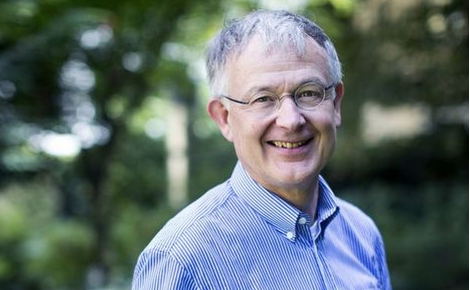
Prof. Dr. med. Eckhard Frick sj
“Spiritual Care belongs at the heart of healthcare – where people work with people.”
Eckhard Frick is a specialist in psychiatry, psychoanalyst, and professor of psychosomatic medicine and Spiritual Care at the Technical University of Munich, Klinikum rechts der Isar. As a pioneer in the field, he has established Spiritual Care in research, teaching, and clinical practice. His work combines clinical experience with anthropological depth, medical ethics, and pastoral sensitivity. MUTASPIR expresses his conviction that spirituality is an integral part of medicine, nursing, and human care – personally, professionally, and systemically.
Show lessSpirituality becomes visible where people face crises, make decisions, and encounter limits. MUTASPIR – from the Latin mutare per spiritualitatem – stands for change that arises from inner attitude. The seven letters point to key areas of focus: staff orientation, organizational culture, top-down and bottom-up communication, resource mobilization, spiritual leadership, patient satisfaction, implementation, and religious and cultural sensitivity. Spiritual Care is a cross-cutting task within the healthcare system. It requires presence, reflection, and professional grounding. MUTASPIR creates the space for this.
Show lessSpirituality is a term with many interpretations. Some associate it with hope, others regard it with skepticism – fearing ideological overtones or conceptual vagueness. Yet spirituality has found its place in health sciences: not as a purely religious concept, but as an expression of existential questions and personal search.
As a physician and priest, I have learned that spirituality can be a source of support – but also of challenge. It is not always healing, but it is undeniably human. I do not advocate for Spiritual Care because it “works”, but because it belongs to the anthropology of the human being. It is not a method, but an approach to being human.
Studies show links between spiritual attitude and quality of life. At the same time, what can be measured only captures part of the picture. In French, a distinction is made betweenbesoin (need) and désir (longing). Spirituality is not exhausted by what is needed; it encompasses what moves us most deeply – often beyond words and measurement.
Spiritual Care arises where people accompany others: in transitions, in illness, in dying, in everyday relationships of care. It is not a separate profession, but a shared posture – at the intersections of medicine, nursing, therapy, chaplaincy, and social work.
MUTASPIR – mutare per spiritualitatem – began as a project. Today, it is more: a movement. An invitation to include spirituality in practice, education, and organizational culture. The Professorship for Spiritual Care at the Munich School of Philosophy accompanies this process through research, teaching, and development.
The name MUTASPIR also expresses a systemic understanding. Each letter stands for a key area of action:
Motivation and employee orientation – because care needs support.
Unity and corporate culture – weil Haltung Strukturen prägt.
Top-down and bottom-up – because change needs dialogue.
Accompaniment and resource mobilization – because potential often lies dormant.
Spiritual Leadership – because leadership depends on values.
Patient satisfaction – because care is more than technology.
Implementation – because values also need structures.
Religious and cultural sensitivity – because pluralism requires awareness.
Spiritual Care is no substitute for chaplaincy. Nor is it a new label for human kindness. Rather, it reminds us that accompanying others requires not only knowledge and technique, but inner presence and attentiveness.
I understand MUTASPIR as a form of “systemic disturbance” in the best sense: an impulse that questions existing routines, opens new perspectives, and reframes healthcare as a community of care. Spiritual Care is part of this movement – grounded in practice, shaped by attitude, open to development.
Show less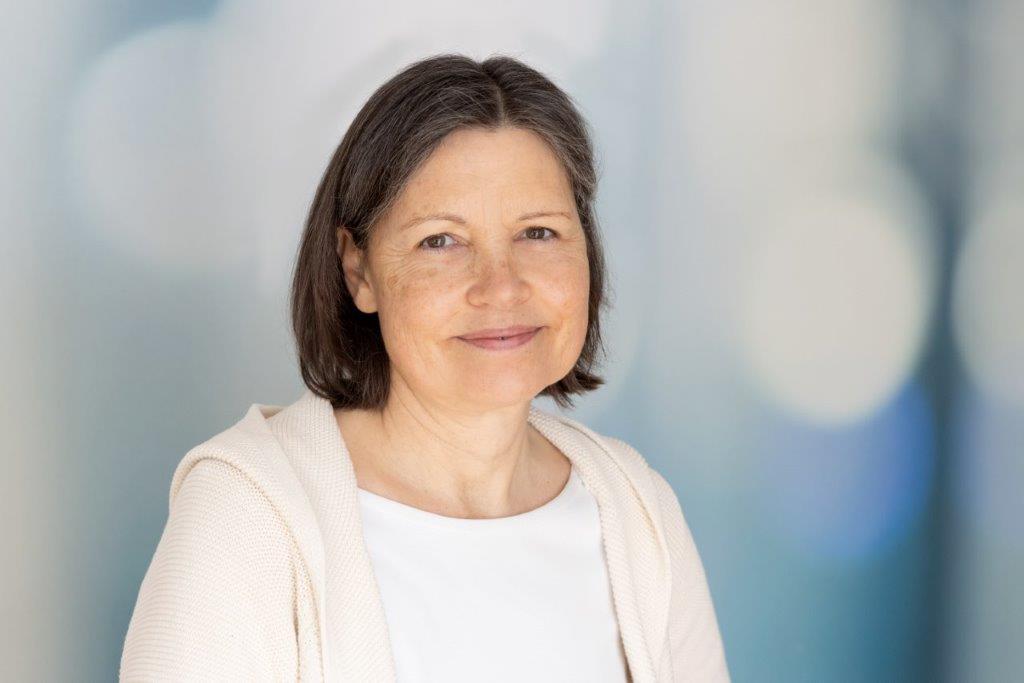
Dr. rer. pol. Ruth Mächler
“Spirituality is not an optional extra – it is the foundation that sustains people in challenging roles.”
Ruth Mächler is a sociologist and theologian. She worked for many years in family research and urban development planning for the City of Munich before returning to academia – joining the former research unit and now professorship for Spiritual Care at the Technical University of Munich. In parallel, she completed clinical pastoral training and now also works in dignity therapy – primarily in palliative care. She was involved in the MUTASPIR project from the very beginning, co-developed materials, and supported the network-building process. Her work combines academic depth, spiritual experience, and practical commitment.
Show lessWhen MUTASPIR was founded in 2019, I was involved right from the start – even before the professorship for Spiritual Care existed. At the time, we began visiting institutions, building networks, and developing materials. Then the pandemic hit, which made many things more difficult – but also led to creative formats: podcasts, digital impulses, and tools for remote support. My personal concern then and now has been to embed spirituality as a natural dimension in healthcare – not only for patients, but also for those who accompany, decide, and care. Because our deeper humanity doesn’t end in everyday clinical life – it is needed there most of all.
In five years, I hope spirituality will no longer be seen as an exotic extra, but as something naturally included – in healthcare, in education, and in the culture of institutions. MUTASPIR should continue to grow: as a network, as an attitude, and as a reminder of what moves people at their core.
Show lessI have come to know the healthcare system from many perspectives: in research, in urban development, as a therapist, and in spiritual care. What strikes me time and again is this: we talk a lot about structures, costs, and efficiency – but too little about what sustains people from within. For me, that’s what spirituality is: a dimension that reaches deep, without being reduced to religion.
When MUTASPIR was founded, I was part of the founding team. We built networks, visited institutions, developed materials – even in the midst of the COVID-19 pandemic, which made everything more difficult and at the same time demanded new digital forms. Podcasts, digital cards, tools for remote exchange – we helped shape all of it, because the need was tangible.
Spirituality is not an add-on. It concerns the image of the human being that underlies our healthcare system – and in that area, we have some catching up to do. Many staff members recognize the spiritual needs of patients, but not their own. Yet they are the ones who encounter existential questions every day: What does meaningful support look like? What defines my work when it’s about life and death?
The patients themselves are often more open – they experience crises, thresholds, profound disruptions. These naturally bring questions of meaning. And relatives are often deeply grateful when their spiritual needs are taken seriously. Those are always moving experiences.
In five years, I hope spirituality will no longer be seen as a foreign element in healthcare, but as an integral part of good care. I hope MUTASPIR has grown as a movement – in reach, but also in depth. That there are strong networks that anchor Spiritual Care in education, practice, and organizational development. I wish for more spaces for reflection, more sensitivity to spiritual needs – among staff as well as patients, families, and leadership. And I hope that in political and ethical debates – such as those around end-of-life, autonomy, and human dignity – we will also hear a voice for spirituality.
I wish for Spiritual Care to no longer be seen as a niche approach, but as a cross-cutting issue considered across all areas of healthcare – from education and interdisciplinary teamwork to the development of institutional guiding principles. That spirituality is recognized as a dimension of human existence – beyond religious labels and open to diversity.
Especially in highly dynamic care settings such as emergency and intensive medicine, I see great potential: that in places dominated by speed and technology, there is also room for mindfulness, pausing, and inner orientation – not as an extra task, but as part of a holistic culture of care.
… and I hope that MUTASPIR contributes to reconnecting healthcare professionals with what once motivated them to choose this path: the desire to truly encounter others. If that succeeds, spirituality is no longer just a topic – it becomes a sustaining attitude.
Show less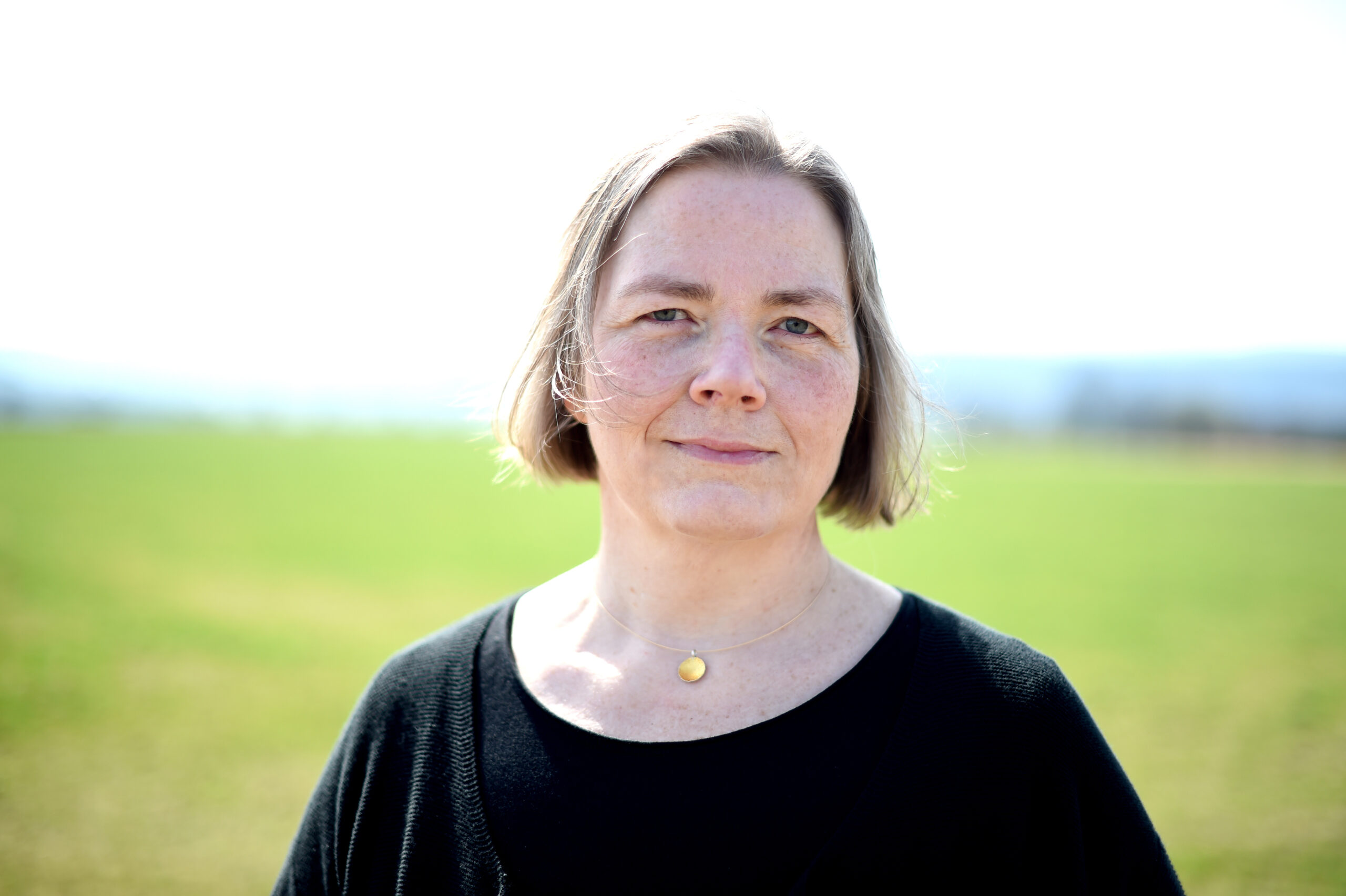
Ulrike Streck-Plath
“Spiritual Care meets what remains quiet within – and is still deeply present.”
Ulrike Streck-Plath brings creative, communicative, and artistic perspectives to the discourse on Spiritual Care. Since the end of 2022, she has been supporting MUTASPIR conceptually, editorially, and visually. Her approach is shaped by many years of experience as a creative professional in healthcare, digital transformation, and sustainability, her personal exploration of spirituality in daily life, and her work as a mentor. She sees Spiritual Care as a potentially healing way of engaging with what moves people at their core.
Show lessWhere people meet, inner spaces come into contact – they connect and intertwine. Unplanned, unspoken, yet inevitable. Spiritual Care can consciously and healingly transform this encounter: by clearly distinguishing between one’s own space and that of the other, and by honoring both – in their being and in their longing. Still knowing that these spaces will inevitably change through encounter – because that is part of life, and of being with others. In healthcare, this means being present, open to resonance, and deliberate in one’s actions. What happens there is less about knowledge and technique, and more about relationship – grounded in trust. This calls for an inner attitude. And it is enough if just one side dares to hold it.
Show lessFrom an early age, I understood spirituality as the fundamental structure of all living things. But it took many years and certain experiences before I could name this understanding of spirituality – one that is distinct from seeking or longing.
In my artistic work, in language, and in accompanying others, I focus on the consequences and possibilities that arise when spirituality as a foundational structure is made practically and scientifically tangible: How can people engage creatively, with agency – and above all healingly – with what is happening deep within them, what is questioning, longing, hoping, and constantly being touched by what enters uninvited from the outside?
Spiritual Care takes this inner world seriously: through an attitude that respects the uniqueness of the other – while remaining aware of one’s own. Eckhard Frick’s traffic light model expresses this precisely.
Green: openness.
Red: protection.
Orange: attentiveness in transition.
This form of perception honors the space of the other – without projection. At the same time, this model connects a complex phenomenon to medicine, care, and everyday life.
For me, Spiritual Care is a logical response to what connects people at the most fundamental level. Instead of asking about meaning, it makes meaning possible – through presence. Spiritual Care asks:
How can someone be held – without being held down?
How can closeness arise – without intrusion?
What happens when silence is not seen as a gap, but as part of the relationship?
The answers to these questions define precisely the space in which Spiritual Care is situated – beyond techniques, terms, or responsibilities.
I am committed to Spiritual Care because I consider what it enables to be absolutely essential – also for society as a whole: true togetherness. Human encounter that reconnects us with something deeply embedded within. A closeness that dares to stay with itself – and thereby truly stays with the other. So that in the other, gently accompanied in this way, something can emerge that is ready to become.
Show lessWeitere Personen folgen
